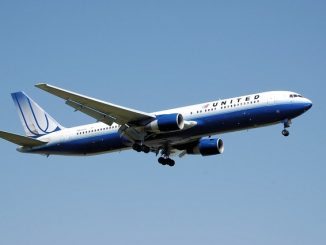Yesterday, I had what has become par for the course on USAir — a 3-hour flight delay for idiotic reasons on the outbound flight and more delays on the return flight. I am out $200 for the accommodations I had to make to overcome the delay (a ticket on Southwest) and I was late to my meeting. I understand that USAir’s formal liability is limited to the amount I paid them for the first leg of the ticket, but I am going to “punish” USAir by taking my next flight this summer on Southwest and “retaliate” against USAir by looking to do as much traveling as I can on other airlines in the future. My desire to punish and retaliate might cost me some extra money, but it’s my money to spend. A law that required me to fly USAir rather than Southwest despite the lousy service would be laughable.
I think that’s how most people understand rules of the game in our society, and that’s why I think the National Labor Relations Board’s case against Boeing (BA) is going to be a political loser for the Democrats for as long as it is in the news. If you haven’t been following this issue, you can get a quick overview here (or in the video posted below). The key paragraphs are:
Mr. Solomon said that he understood that the complaint had made local workers “feel vulnerable and anxious,” but that it had been brought because of concerns that Boeing had been motivated by retaliation against workers exercising their right to strike. “These are difficult economic times, and I truly regret the anxiety this case has caused them and their families,” he said during his testimony. “The issuance of the complaint was not intended to harm the workers of South Carolina, but rather, to protect the rights of workers, regardless of where they are employed, to engage in activities protected by the National Labor Relations Act, without fearing discrimination.”
Mr. Solomon filed a complaint in April alleging that Boeing decided to locate a new assembly line to build 787 Dreamliner jets in South Carolina because it was trying to punish union workers in Washington state for their past strikes. Boeing says the charge is groundless and has said it will fight the case to the Supreme Court.
I think the claim that failing to expand in a given area because it is cheaper to expand in another area is a violation of any law that is worth being upheld is going to be a tough one to make. It is further complicated, in this particular case, by the fact that there is no evidence that any specific workers have lost jobs in Washington, Boeing’s home and the location of the existing assembly lines for the 787.
- Bulenox: Get 45% to 91% OFF ... Use Discount Code: UNO
- Risk Our Money Not Yours | Get 50% to 90% OFF ... Use Discount Code: MMBVBKSM
Disclaimer: This page contains affiliate links. If you choose to make a purchase after clicking a link, we may receive a commission at no additional cost to you. Thank you for your support!





Leave a Reply